Download PDF Version
Opens in a new window.Goodbye Greenwashing:
How To Back Up Sustainability Claims With Product Certification
There’s no shortage of sustainability claims in the industry these days. Make sure you can tell the difference between greenwashed goods and verifiable, certified sustainable products so you can better educate clients and fulfill their eco-friendly needs.
Sustainable Stats:
The Rise of Conscious Consumerism
There’s a reason why there’s an influx of sustainable products in the promo space. Today’s consumers have an increased interest in purchasing and using only eco-friendly items that do good for our planet and reduce our overall carbon footprint. Share these impactful statistics with your clients to open their eyes to the demand for sustainable products and why investing in them makes for a savvy marketing strategy.
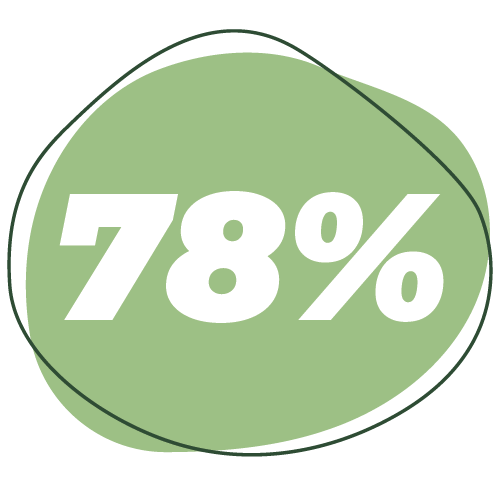
of U.S. consumers say that a sustainable lifestyle is important to them, per NielsenIQ.
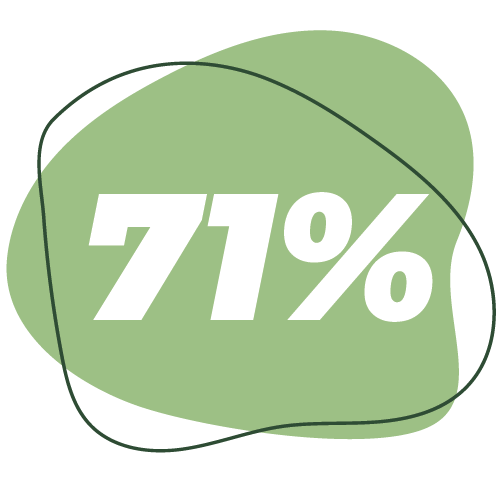
is the rise in global online searches for sustainable goods over the past 5 years, per The Economist Intelligence Unit.
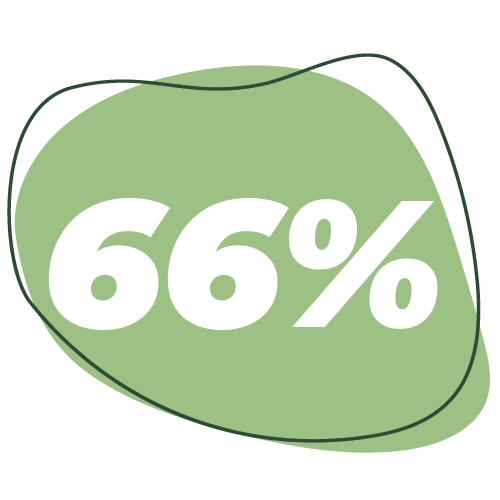
of consumers consider sustainability when making a purchase, per McKinsey & Co.
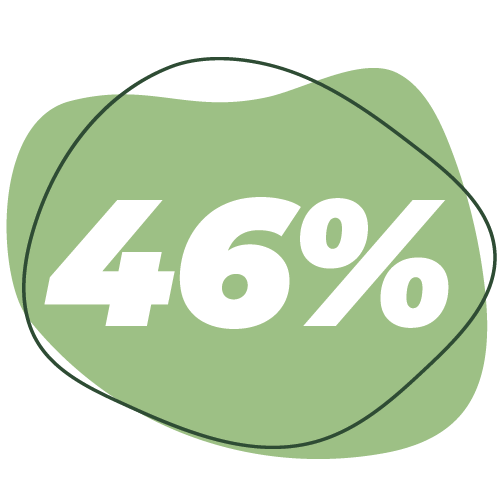
of consumers feel more favorable towards an advertiser if they gave them a promo product that is environmentally friendly, per ASI’s 2023 Ad Impressions Study.
“Greenwashing”:
The Truth Behind Misleading Eco Marketing
You’ve likely heard the term “greenwashing” get thrown around in sustainable conversations lately – but what exactly does it mean? Greenwashing is the practice of intentionally misrepresenting products as being eco-friendly when in truth they only adhere to very minimal sustainable standards. While products featuring any sustainable elements at all is an inherently good thing, the trouble lies in companies overselling or embellishing the true eco impact of these products and how they’re made, as distributors like you are often left just having to take their word for it.
Not only does greenwashing undermine real efforts to be more environmentally friendly, but it can also cause harm to your distributorship should you unknowingly present greenwashed products to clients who need the highest standard of sustainable goods. This can erode client trust in your business and will devalue credibility with consumers – a lose-lose situation. This is why it’s so important to do your research when clients come to you seeking sustainable products. Instead of taking risks on vague eco-friendly claims, look for certifications that can back up sustainable statements and ensure you’re always providing your clients with the real deal.
Why GRS?
Direct Impact Visibility
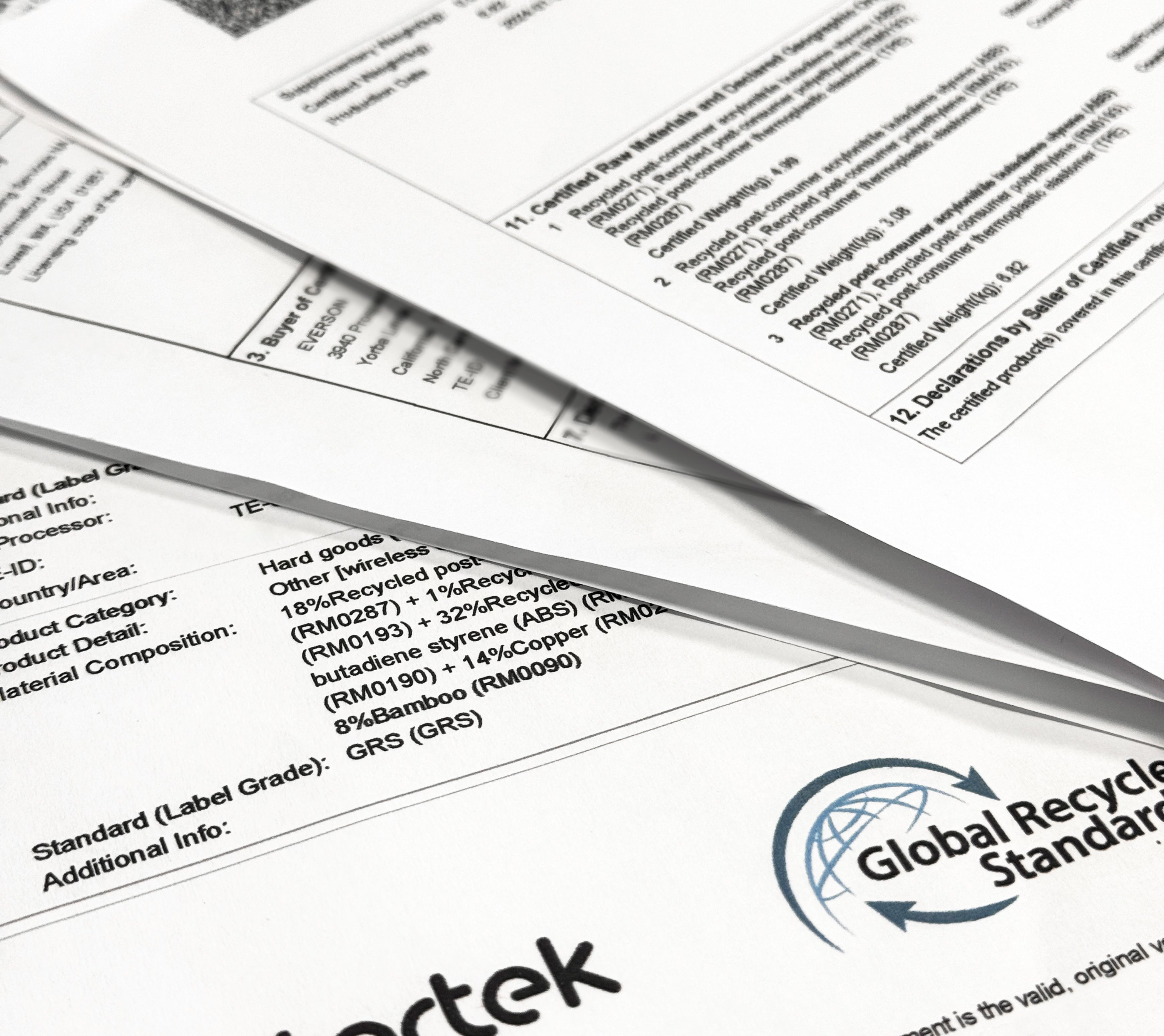
When it comes to sustainable credentials, you can’t do much better than the GRS (Global Recycle Standard) certification: a voluntary product standard for tracking and verifying the content of recycled materials in a finished product. Administered by the Textile Exchange, a global nonprofit organization that has been committed to sustainability in the textile industry for the past 20 years, its scope now extends beyond fashion to include materials found in everyday consumer goods, including promotional products.
GRS certification has three main benefits:
1
Provides buyers with documented audited traceability of raw materials: Known as a Transaction Certificate (TC), every component on every item is accounted for, ensuring the integrity of the manufacturing process.
2
Internationally recognized certification: This accreditation has weight globally and is a trusted name in the sustainability space.
3
Guides buyers in making informed choices about eco-friendly products: Buyers can see the exact environmental impact of their purchases through easily accessible documentation.
This certification requires each step in a product’s supply chain to be audited by a third-party certification body such as Intertek or Bureau Veritas. Because this certification is so thorough and requires the audited company to pay for each step of the review process, many suppliers opt for less involved sustainable labels. While any eco-friendly features are great, GRS certification takes it a step further by verifying and documenting all sustainable claims made and providing a breakdown of all the recycled components in a product. This is especially helpful as the eco space is still in its infancy and no standards have been widely established yet, resulting in confusion over how to identify the highest standard of sustainability. GRS certification makes it easy by offering a verifiable standard you and your clients can trust for authenticity and accuracy in sustainable labeling.
This means that rather than being simply a “feel good” purchase with generalized green statements that don’t provide verified information on how the product helps the planet or how profits are used, GRS-certified products can back up every claim made for a real, tangible impact purchase that has the documentation to prove it. You’ll know exactly how the product was made along with the percentage and breakdown of recycled materials used for a truly transparent sustainable purchase you and your clients can order confidently.
A product must satisfy the following criteria to be eligible for GRS (Global Recycle Standard) certification labeling:
- 50% or more recycled content
- Restricts the use of hazardous chemicals in the product’s processing
- All sites involved in the product’s manufacturing must meet strict social and environmental requirements
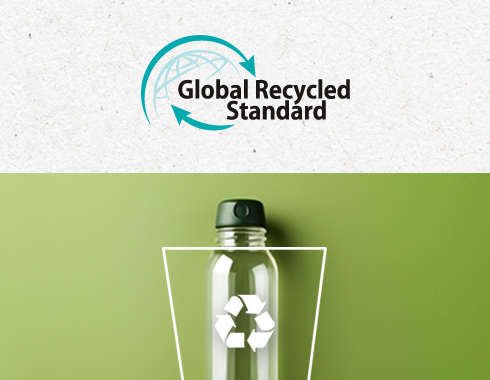
An example of a GRS Certified item is the Karsten GRS-Certified Recycled 15W Magnetic Wireless Charger (13355) from Everson.
This exclusive item is made with 51% certified post-consumer recycled content. You can see the breakdown of what those materials actually are:
- 32% recycled ABS
- 18% recycled TPE
- 1% recycled PE
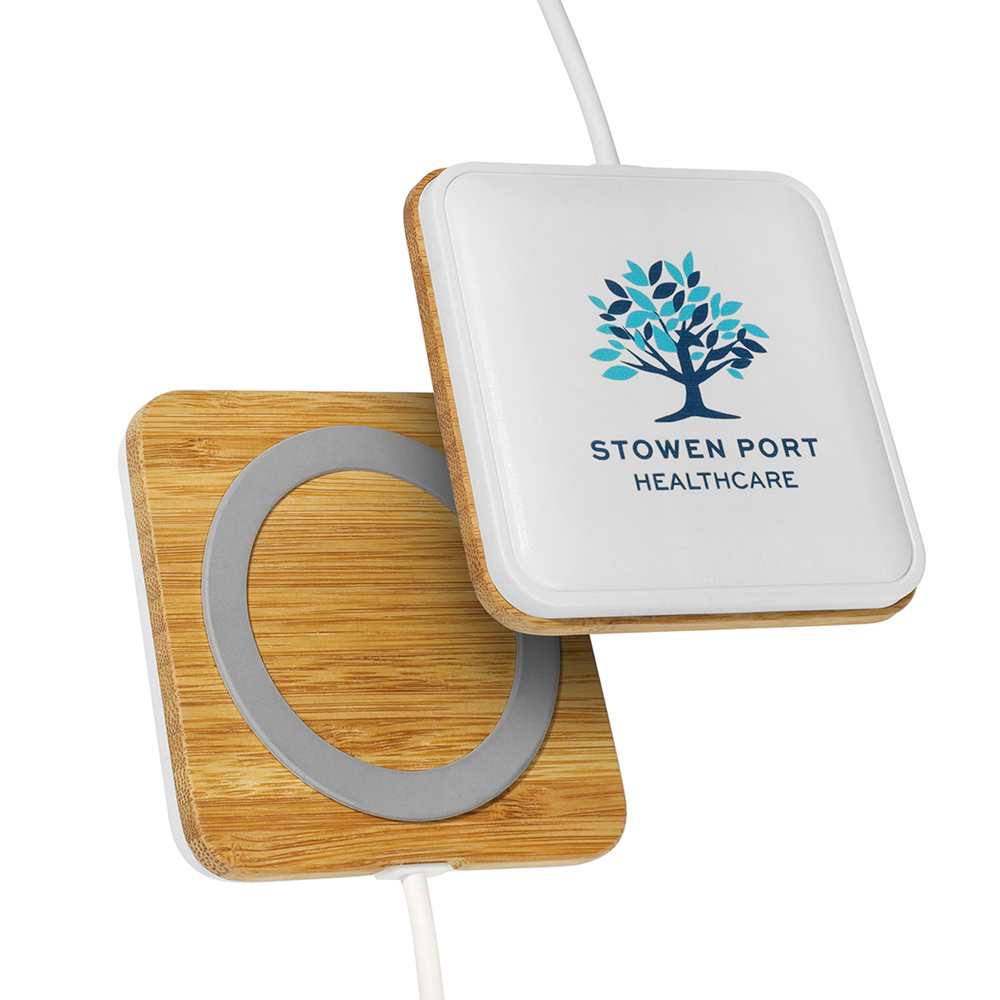
Download PDF Version
Opens in a new window.To explore more GRS certified products, or learn more about the impact GRS certifications have in authenticating sustainability claims, call or visit EversonBrand.com
